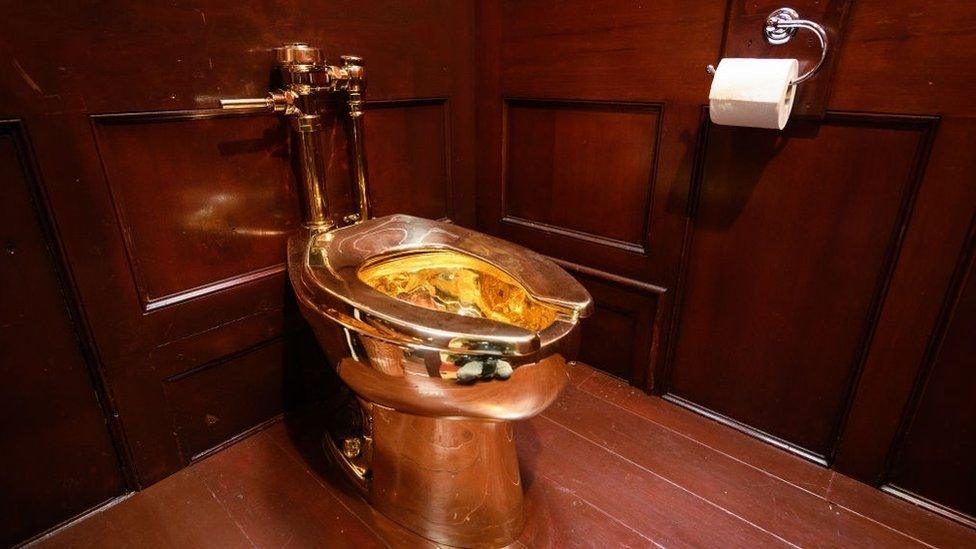The Duke: Why my family stole a masterpiece portrait
- Published
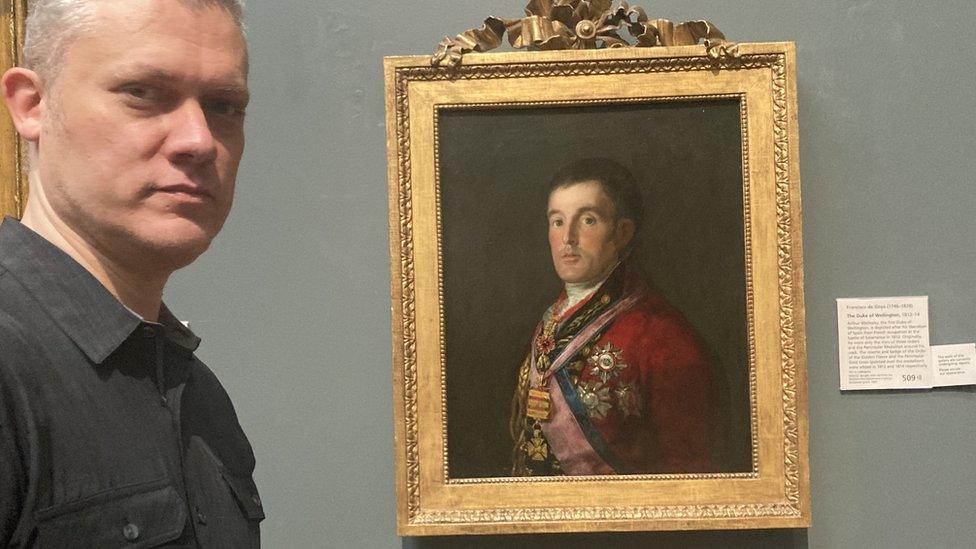
Christopher Bunton alongside the Goya painting of Duke Wellington which his grandfather Kempton stole and took home to Newcastle
"If we grabbed it and ran… which is the best way to go?"
"We go that way," he says, pointing to my right, "and we can get to the second floor, then go to the men's toilet and there's a ladder. Hopefully there's a ladder in the back, the ladder from 1961."
The man giving me advice on how to steal a painting from the National Gallery knows what he is talking about. It was his family that stole the famous portrait of Goya's Duke of Wellington from the National Gallery in London.
To understand how famous the theft was, when James Bond found himself in the lair of Dr No in 1962, it was shown sitting there.
And now all these years later, Christopher Bunton is finally revealing the full story about what actually happened - the inspiration for director Roger Michell's final film, The Duke, starring Jim Broadbent and Dame Helen Mirren.
"He [The Duke of Wellington painting] was taken from this gallery and he spent four and a half years in my grandparents' council house in Newcastle," he says.
"It's an amazing headline, but for me what was important was to include the family side of the story. And it's really all about a family drama and about working-class struggle and the factors that influenced the decision making of my family."
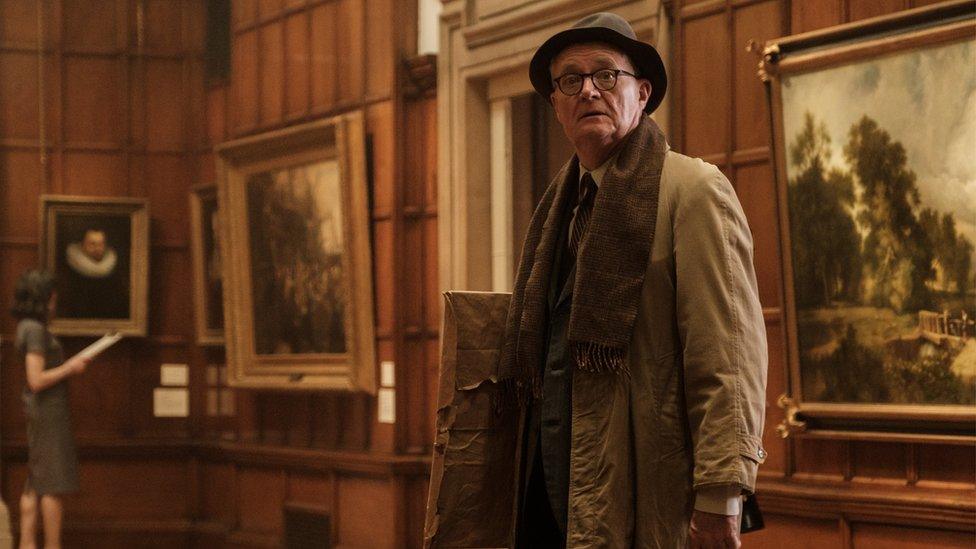
Jim Broadbent plays Kempton Bunton in the new comedy-drama heist film
The hero of the story is Christopher's grandfather, Kempton Bunton, portrayed in the comedy-drama heist film by Broadbent. Mr Bunton, a father-of-five, had left school aged 13 and had had a variety of jobs (some of them very short-lived), including working as a taxi driver. As a husband and provider he had his shortcomings but he had a strong sense of moral purpose.
"He was ultimately a good man for all his flaws and he wanted to do what was best for his family but he also wanted to help people who needed support," Bunton adds.
One of his passions was the BBC. He had been imprisoned more than once for refusing to pay the licence fee.
"He felt TV was a cure for loneliness for pensioners and war veterans and at that time there wasn't much else for people who were isolated and alone. My grandad actually recognised the value of the BBC, so he felt it should be made available to everybody that needs it and this was part of his campaign for free TV licences for pensioners."
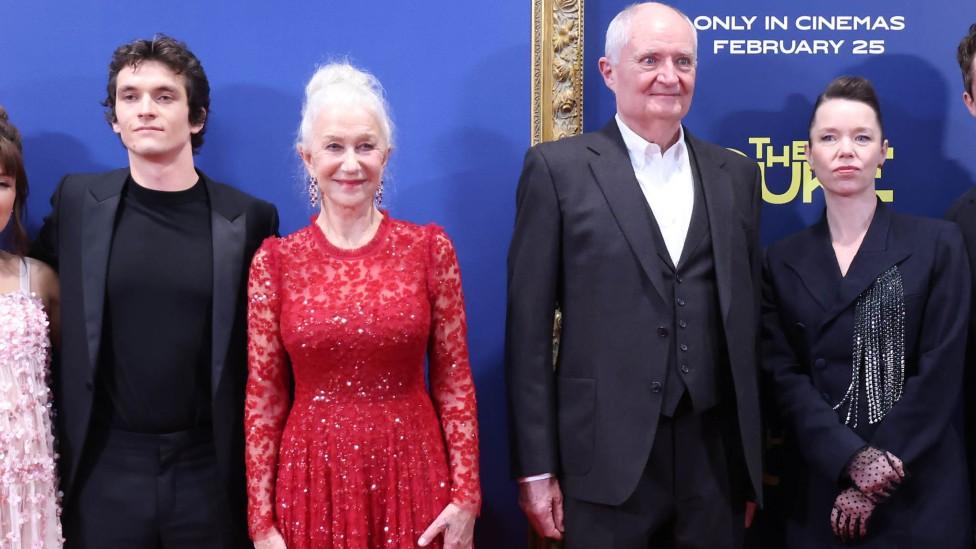
Stars including Broadbent and Dame Helen Mirren attended the film's premiere at the National Gallery earlier this month
Stealing the painting was, he later said, part of his campaign for free TV licences (which were in-fact made free to the over-75s a mere 40 years later, in 2000, though that concession came to an end in recent times for over-75s not on pension credit).
After a ransom demand was made (and ignored), the painting was returned, via a locker in Birmingham New Street station, in 1965. However, some of the facts that were revealed at the time do not quite make sense.
For instance, the window in the toilet that was said to have been used to get the painting out of the gallery was rather small - and Kempton Bunton was rather large. The judge at the time remarked about Mr Bunton's "remarkable athletic feat".
The film goes into what really happened.
The key details were revealed a few years ago, when documents were finally made public but this is the first time the family has agreed to explain the full story, and even after all these years they have had to have legal advice.
"I got both my mum and my dad's permission, but also I got legal advice because I was concerned about any ramifications, and once those concerns were satisfied, then we moved ahead," he says. "No-one's going to go to prison."
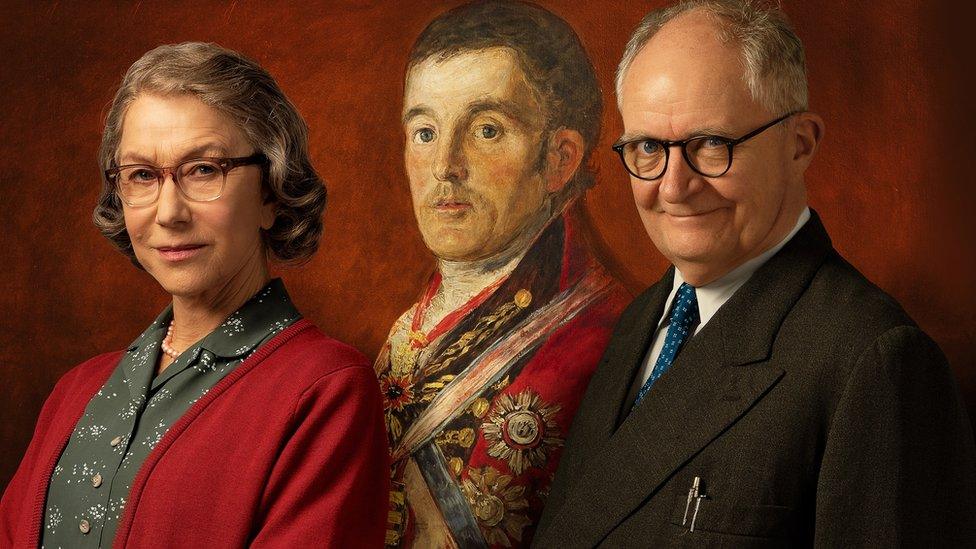
Dame Helen plays the role of Dorothy Bunton, Kempton's wife
Nevertheless, what appears at first as a comic caper is about more than just an unlikely art thief. Kempton Bunton's confession and trial made him, briefly, famous. For the family back home in Newcastle, struggling to get by, it was more complicated.
"Is he a hero in your family?" I ask.
"For me, for myself? Yes," he replies. "My dad might need more convincing."
For Oscar-winner Jim Broadbent, his story was "gloriously unbelievable". "You wouldn't be able to sell it as a fiction - if you said, 'I've written this story', no-one would believe it," the actor told the PA news agency this week.
Historical landmark
The story of Kempton Bunton's trial at the Old Bailey is, in itself, a historical landmark. Some of the best lines in the film come from the court scenes and many of them are direct quotes of Kempton Bunton's words.
Also, his defence that he had essentially just borrowed the painting for a few years, led to a new offence being added when the law of theft was rewritten in 1968, "any person who without lawful authority removes any article displayed to the public… shall be guilty of an offence".
Kempton Bunton's eventual conviction was for the theft of the frame, which was not returned to the National Gallery. He spent three months in prison and died a decade later, in 1976.
All these years later, it is his grandson, Christopher, who is the driving force in this project, telling the story of a man who died the year he was born. And while the film may feel like a classic British comedy, he stresses that most of it is an accurate reflection of what really happened.
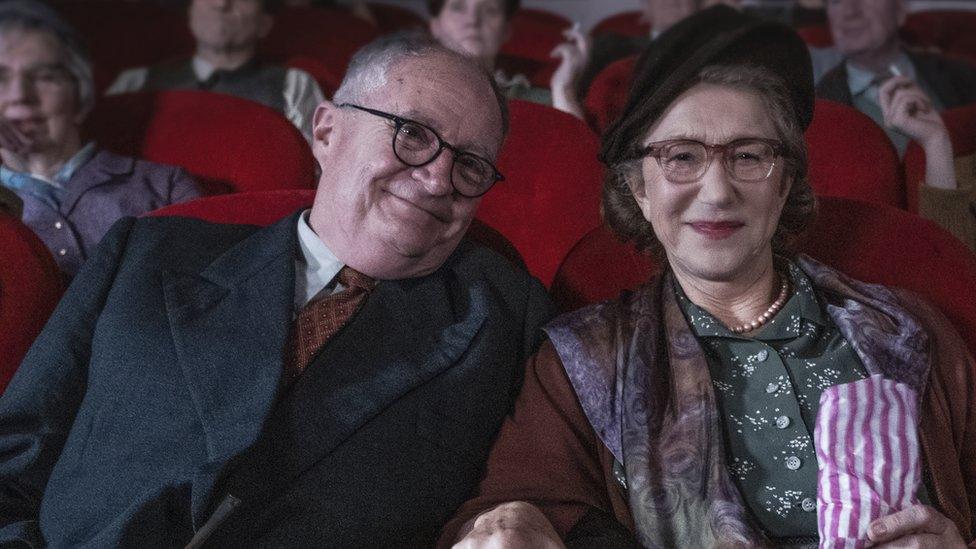
Broadbent described Kempton Bunton's story as "gloriously unbelievable"
"I guess you could say it brings a bit of closure to the the whole episode," he says. "It's not something my family are proud of, and I think now that it's been turned into something positive, it's something we can hopefully be proud of in the future.
"In a lot of the materials that were previously online, some of it was a little bit unfair to him [Kempton Bunton]."
"He could have been a better family man," he continues. "He was a little bit selfish, but at the same time he performs an extraordinary feat for the benefit of his family.
"He's a contradictory character. He's nice but he's not a superhero."
And just in case you were wondering, the window escape route is no more and someone has moved the ladder.
The Duke is out in UK cinemas from 25 February.
Related topics
- Published16 January 2022
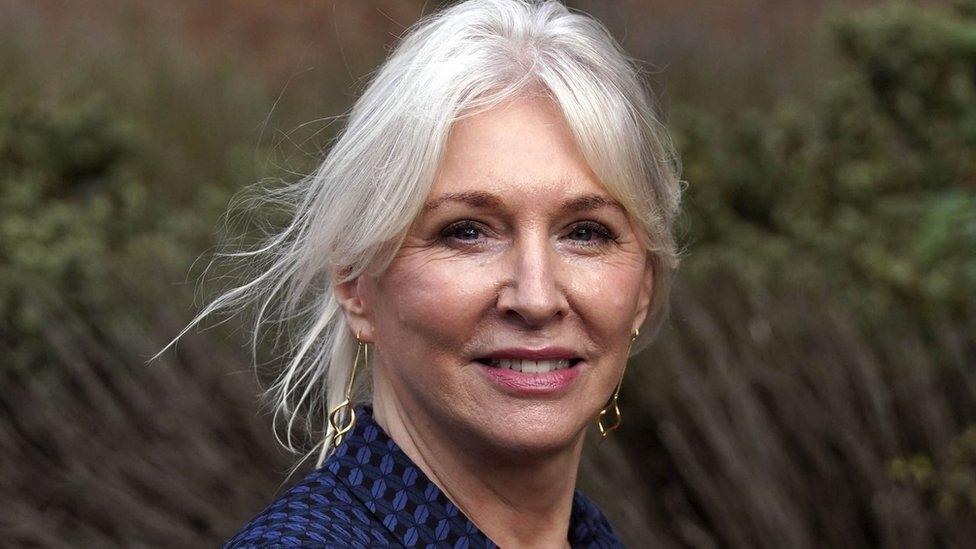
- Published15 February 2022
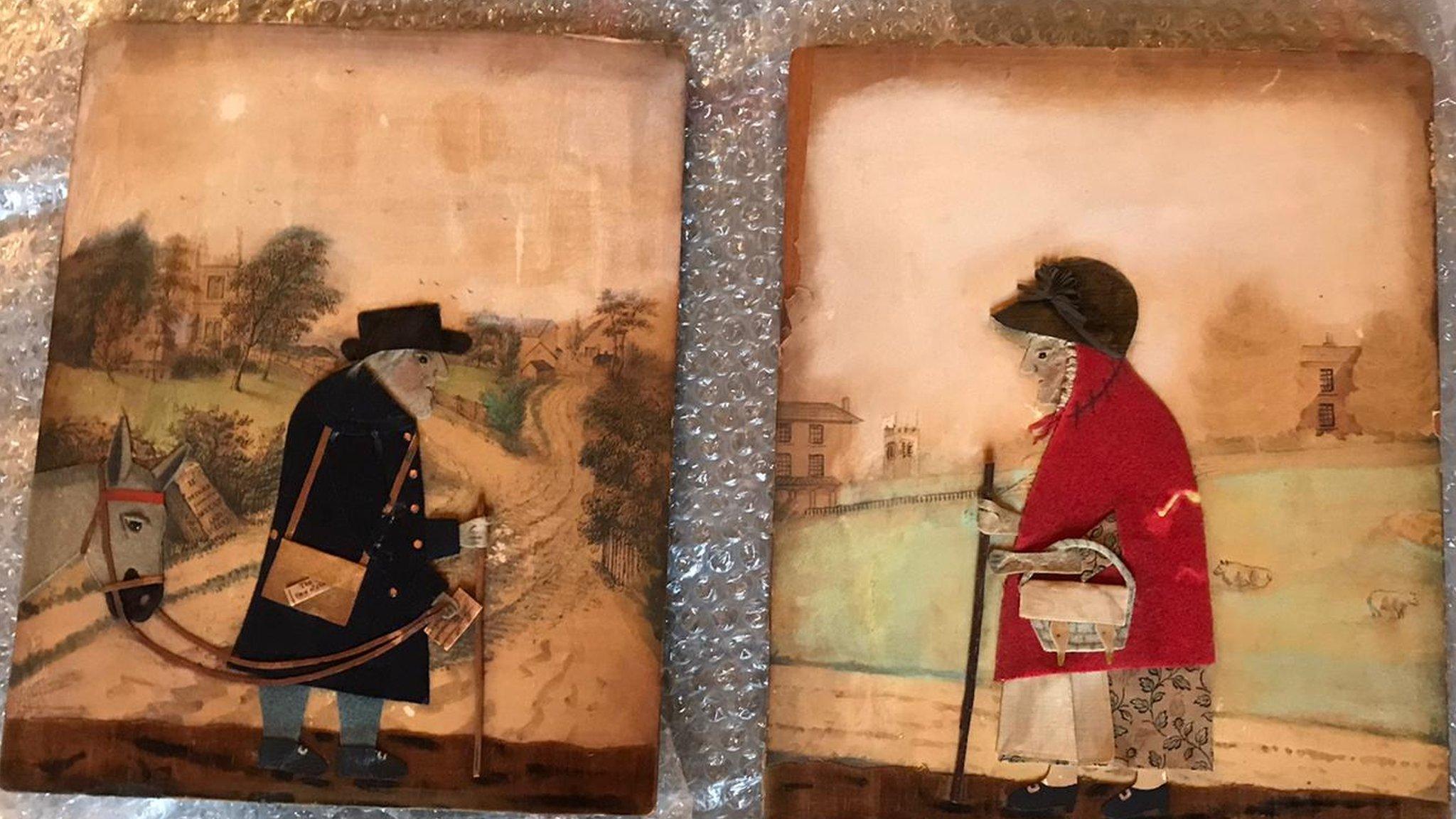
- Published18 June 2020
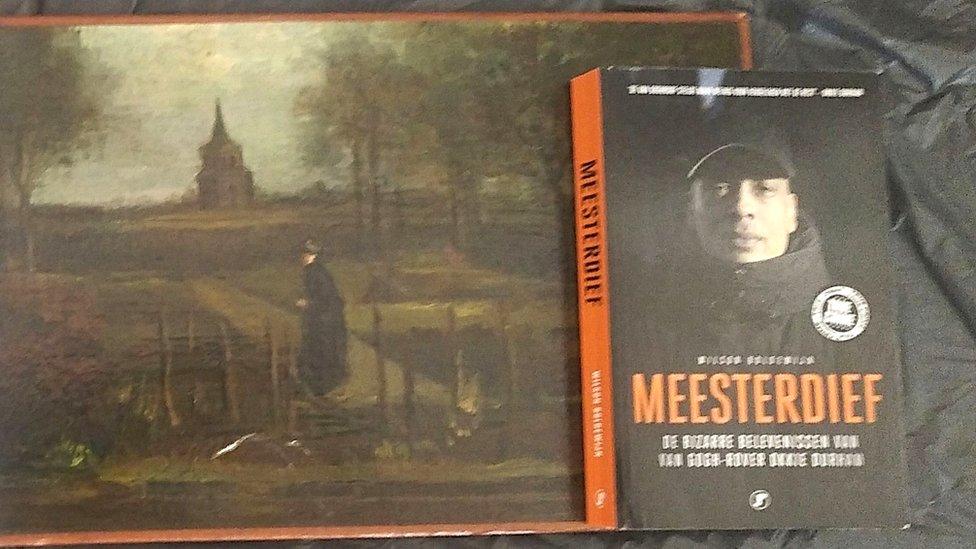
- Published16 November 2019
